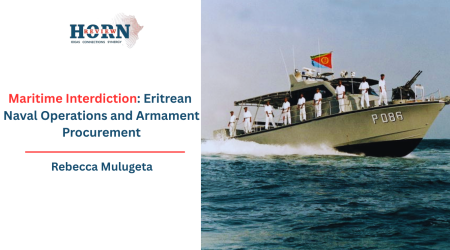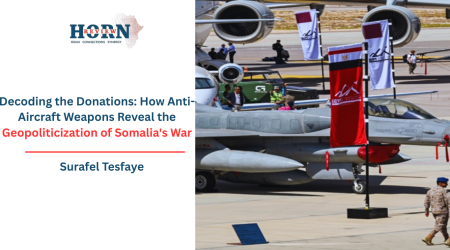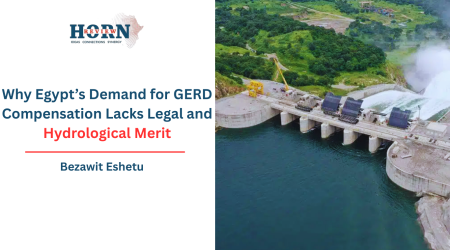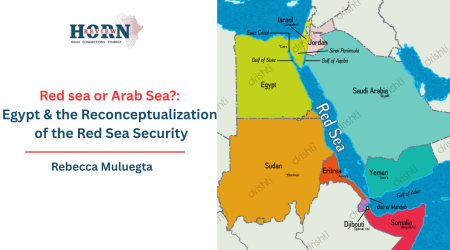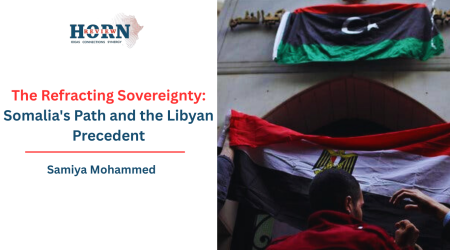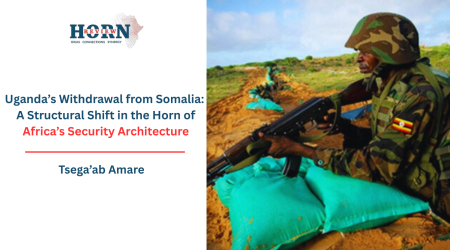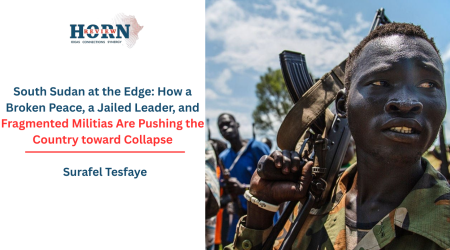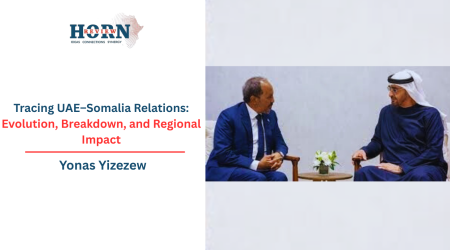
18
Aug
Egypt’s Nile Diplomacy: Engaging Allies While Sidestepping Ethiopia
The Grand Ethiopian Renaissance Dam (GERD) is a colossus of Ethiopia’s dream, a symbol of energy freedom and country ambition for development. Its much-awaited inauguration this September 2025 is a new period of the usage of the Nile’s resources, a fulfillment of Ethiopia’s sovereignty to leverage the lifeline of the country.
However, this initiative was inflamed by Egypt’s firm resistance and became one of Africa’s most longstanding, most contentious Nile basin water rights disputes, a struggle between Ethiopia’s ambition and Egypt’s continuous backing. Recently, Egyptian President Abdel Fattah al-Sisi’s solid declaration in Cairo that Egypt “will never surrender its water rights” stressed the gravity of the issue, signaling a refusal to accept any unilateral actions along the Nile that disregard Egypt’s position warned that anyone who believes Egypt will overlook its water right ‘is mistaken’ (SIO, 2025).
Despite the consistent undermining and restraint via international conferences, Egypt has continued to avoid direct negotiations with Ethiopia. The perpetual circular conversation that does not mention Ethiopia by Egyptians media outlets is historical mistrust caused by past disputes in nile water and strategic interests. But the bait is Egypt retains its colonial period water rights that it obtained under the 1959 and 1929 treaties in all GERD filling negotiations and insists on binding agreements, despite Ethiopia being the Nile’s source country with some 85% of its waters, becoming ever more unfair and unsustainable (Whittington, 2024).
To Cairo, direct talks with Ethiopia can legitimize Ethiopia’s fair demands and undermine Egypt’s traditional control over the river flow. Egypt’s fear of losing political sway turns it wary of bilateral talks, seeking instead to rally support among regional allies like Sudan, Somalia, and Uganda further to the west in an attempt to isolate Ethiopia diplomatically and push it through collective regional and international forums.
Egypt uses such back talks so that to split Ethiopia potential alliances, making Ethiopia look obstinate by drawing attention using hard interest in water and regional hegemony which are incompatible with the regional vision of Africa. Egypt continues to undermine the right of Ethiopia by providing security operations to surrounding countries to frame any joint position among Nile basin states, to not leave any chance for Ethiopia to have an alliance. By diplomatic encirclement and pressure Ethiopia through the back comment it wishes to show that it is the defender of downstream nations and work towards regional stability at the same time portray that Ethiopia is undermining the national existence of the nile repatriate countries.
In the latter years of Nasser and Mubarak rule Egypt had lesser influence in Africa because of their alignment to the west, in today’s world they want the union of the horn and african countries to regain their reputation to counter ethiopia initiatives. The approach also includes its geopolitical ambition to maintain influence in the horn of Africa (Harvey, 2025). In addition, it wants to show their domestic audience their discourse and actions so that direct involvement talks in GERD with Ethiopia are very risky by noting nile is their national existence. In order to diplomatically isolate Ethiopia within the international and regional arenas, Egypt does not engage in legitimate talks with Ethiopia. This is in line with a broader trend of Egyptian foreign policy, which prioritizes alliance-building and proxy influence against direct showdowns with perceived rivals.
The trend of Egypt’s strategy of talking to everyone except the contenting country is not a thing for Ethiopia only, Egypt in the past also did as such a strategy not confronting nations in negotiations but employing conversation with others to indirectly impart influence. From the Cold War period when Cairo took sides with the Soviet Union and Arab countries against Israel to the current intervention in Libya’s civil war by taking sides with the UAE, Saudi Arabia, and Russia, Egypt has never had more than a balance of influence in the region and is always better off with coalitions than direct negotiations. The traditional Sudan deal of 1959 which provided 0BCM to Ethiopia that also established a framework of joint management is a clear path that Egypt overlooks Ethiopia without having bilateral talks (Kimenyi and Mukum, 2015).
Upholding till date with maintaining defence pacts with Somalia which strategically function to oppose Ethiopia’s national interest, rather than giving voice to Egypt at international levels. This foreign policy strategy of alliance and using forums to speak on behalf of Egypt, which was conceived out of the heritage of Nasser and the rest of the leaders, is Egypt’s belief that power emanates from alliances and therefore can project its interests forcefully across Africa and the Horn of Africa.
And now, the Nile conflict is not only framed in terms of water rights but also as a matter of national security and regional hegemony. Egypt reconfigures the conflict in terms of one transcending bilateral spat to impact shared rights of lower riparian’s, thereby widening its diplomatic front through activating an alliance of friends, a narrative that activates domestic solidarity through positioning the regime as devoted champions of valuable national resources against worsening water shortage. Ethiopia views GERD as a pillar of sovereign development and a natural right and not just a geopolitical bargaining tool.
Unlike Egypt, Addis Ababa is ready to negotiate technical, safety, and operational matters bilaterally and multilaterally but entirely refuses any platform that could curtail its ability to derive benefit from the Nile for national development. Ethiopia’s emphasis on multilateralism is driven by a desire to promote equal participation by all Nile Basin countries and to prevent disproportionate deal-making.
By engaging Egypt directly as well as through wider regional diplomacy, Ethiopia wants to promote cooperation, foster equal sharing, and help ensure balanced management of the Nile’s crucial resources. In this delicate dance of diplomacy and power, Ethiopia needs to gain by utilizing an expert shuttle diplomacy with back-and-forth mediated negotiation through known facilitators. It would recognize Egypt’s interests without putting at risk Ethiopian interests.
Ethiopia can go ahead with what it is doing to spearhead continuous discussion under the African Union or with neutral international facilitators with emphasis on transparency, joint water management, and mutual benefits. Power-sharing agreements, like the supply of excess electricity from GERD to downstream neighbors, would be another step Ethiopia can take to show its commitment to mutual integrity, Ethiopia already doing this by selling electricity to Tanzania and Djibouti. Modest modalities on dam filling and operation would also reassure Egypt and Sudan, without compromising Ethiopia’s sovereignty and development agenda.
By adopting shuttle diplomacy, Ethiopia would not only decrease tension in the area but also transform itself into a pragmatic, responsible actor interested in peaceful coexistence and collective progress. This step would counter to some extent hardline stereotypical portrayals of Ethiopia as inflexible and instead create an environment for incremental trust-building and cooperation. This type of pathway would unlock long-term covenants that honor historical context while achieving flexibility to address evolving needs in all Nile basin countries.
Egypt’s consistent hesitation over direct talks with Ethiopia is a sign of deeply entrenched attitudes to portray Ethiopia as a stubborn nation and also it is based on their history isolating Ethiopia regionally, amplifying nile as their national security needs, and to push the internal politics into nile national sentiment. The emphasis on alliances and indirect diplomacy is a thread that flows throughout Cairo’s foreign policy and strategies in its relations with Israel, Libya, and other regional states. But for future stability and development in the Nile Basin, however, today’s zero-sum drive needs to give way to dynamic dialogue and joint use of water. Ethiopia’s smart use of shuttle diplomacy complemented with tough affirmation of its rights offers the best way out. By constructive, cooperative engagement, the Nile can be turned into a unifying lifeline of assurance instead of a cause of conflict for all nations along its course.
By Rebecca Mulugeta, Researcher, Horn Review
References
- Dale. Whittington. (2024). ‘The Long Shadow of the 1959 Nile Waters Agreement.’ Water policy, Vol: 26(9), Pg:859-874.
- Fenton. Harvey J. (2025). ‘Against Ethiopia, Egypt Courts East Africa States Over Nile Dam Disputes. Al-Monitor.
- Mohammad Sio. (2025). ‘Egypt Says Will Not Give Up Its Water Rights Amid Nile Dam Dispute With Ethiopia.’ Anadolu Agency.
- Mwangi S. Kimenyi and John Mukum Mbaku. (2015). ‘The limits of the new “Nile Agreement.’ Brookings.

